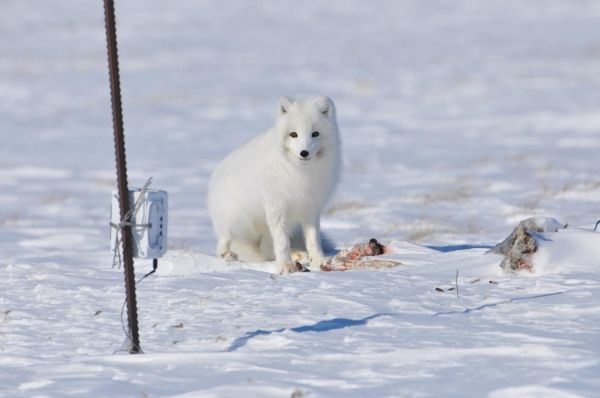New findings on the diet of Arctic foxes, determined by the condition of their teeth, show how varying climate conditions in the Arctic affect the animals that live there.
In a study published in Polar Biology, Peter Ungar, Distinguished Professor of anthropology at the University of Arkansas, and several co-authors, analyzed tooth breakage and wear – both gross and micro – of Arctic foxes from Russia’s Yamal Peninsula.
Studying the effect of varying climate conditions within this region helps scientists understand the impact of climate change on vulnerable animals and could explain future responses and adaptation, given the warming trend and thawing in Arctic areas. The researchers’ study is the first to combine dental proxies for short-term, or seasonal, and long-term, or lifetime, diet to better understand how resource depletion affects species differently in different locations within the Arctic.
Read more at: University of Arkansas
Arctic fox, in winter fur, scavenging on reindeer remains. (Photo Credit: Aleksandr Sokolov, Arctic Research Station)


